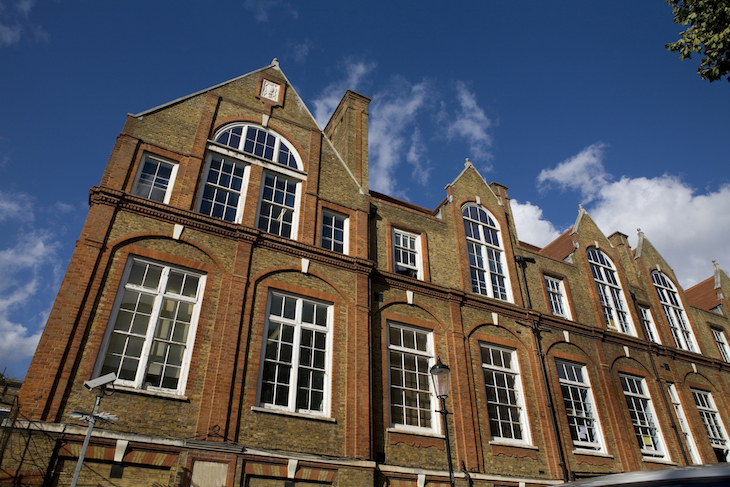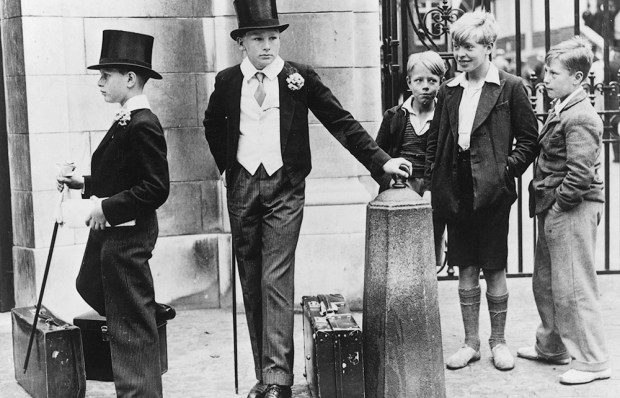A paper published last week in an academic journal called npj Science of Learning attracted an unusual amount of press attention. It looked at the GCSE results of 4,814 students at three different types of school — comprehensives, private schools and grammars — and found that once you factor in IQ, prior attainment, parental socio-economic status and a range of genetic markers, the type of school has virtually no effect on academic attainment. Less than 1 per cent of the variance in these children’s GCSE results was due to school type.
I should declare an interest, since I was one of several co-authors, along with the distinguished behavioural geneticist Robert Plomin — who first announced his findings about the heritability of GCSE results in The Spectator in 2013 — although I had a very minor role. The researcher who deserves the lion’s share of the credit is Emily Smith-Woolley.
I was surprised by just how tiny the effect of attending a grammar or a private school turned out to be. Last November I wrote a blog post for the education charity Teach First in which I pointed out that general cognitive ability is the best predictor of how well children do in their GCSEs, with differences in IQ accounting for more than half the variance and differences between schools — the money they receive per pupil, average class sizes, quality of the teaching staff — accounting for 10 per cent or less. That claim, which has been substantiated many times by education researchers, was considered so shocking by Teach First that it removed my post and apologised for having published it. Yet this latest research suggests the effect of attending one type of school instead of another is even more negligible than that.
This paper hasn’t been greeted with the howls of outrage that these findings often provoke from environmental determinists — at least not yet. It probably helps that it offers some ammunition to critics of selective education, although not of the standard variety. The left-wing argument against private schools and grammars is that they perpetuate class privilege by admitting an above average number of well-to-do children, with the critics taking it as read that they offer a better education than bog-standard comprehensives.
But if Smith-Woolley’s findings are correct, the reason children at these schools do better in their GCSEs is because of characteristics they bring with them, including family socio-economic factors. It’s not due to anything special about the schools themselves. In a way, it’s a rebuttal of the left-wing critique: if selective schools don’t confer any benefits, no harm can come to the commonweal from allowing parents to send their children to them. Admittedly, parents waste a lot of money on the illusion that they do, but if they want to fritter away their after-tax earnings on this snake oil, that’s their right.
Smith-Woolley would tell me I’m getting ahead of myself here. This study looked just at GCSE results, and it’s possible that selective schools account for more than 1 per cent of the variance in A-level results, admission to high-tariff universities and future earnings. This is often the line taken by private-school head-teachers: GCSE results may be ‘highly heritable’, but what a child achieves after 16 is less so and that’s where good schools really make an impact. Smith-Woolley is non-committal about this. ‘Previous research has shown there is actually increased heritability in core traits such as general cognitive ability as children get older,’ she says. The evidence so far suggests that A-level results and university admissions are only marginally less heritable than GCSE results.
When friends next consult me about whether to ‘go private’, I plan to cite this paper, although GCSE results may not be their only concern. There are plenty of other things private schools are selling that aren’t snake oil, such as performance spaces, sports pitches and beautiful surroundings. The evidence that private schools ‘build character’ is pretty threadbare, but the experiences children have as a result of all these lavish facilities are worth a bob or two. And while the type of school you go to may not matter much in the long run, there are unquestionably different school types — the ‘Old Etonian’, the ‘Wykehamist’, etc. If that’s what parents are shopping for, rather than superior exam results, good luck to them.
Got something to add? Join the discussion and comment below.
Get 10 issues for just $10
Subscribe to The Spectator Australia today for the next 10 magazine issues, plus full online access, for just $10.
You might disagree with half of it, but you’ll enjoy reading all of it. Try your first month for free, then just $2 a week for the remainder of your first year.















Comments
Don't miss out
Join the conversation with other Spectator Australia readers. Subscribe to leave a comment.
SUBSCRIBEAlready a subscriber? Log in